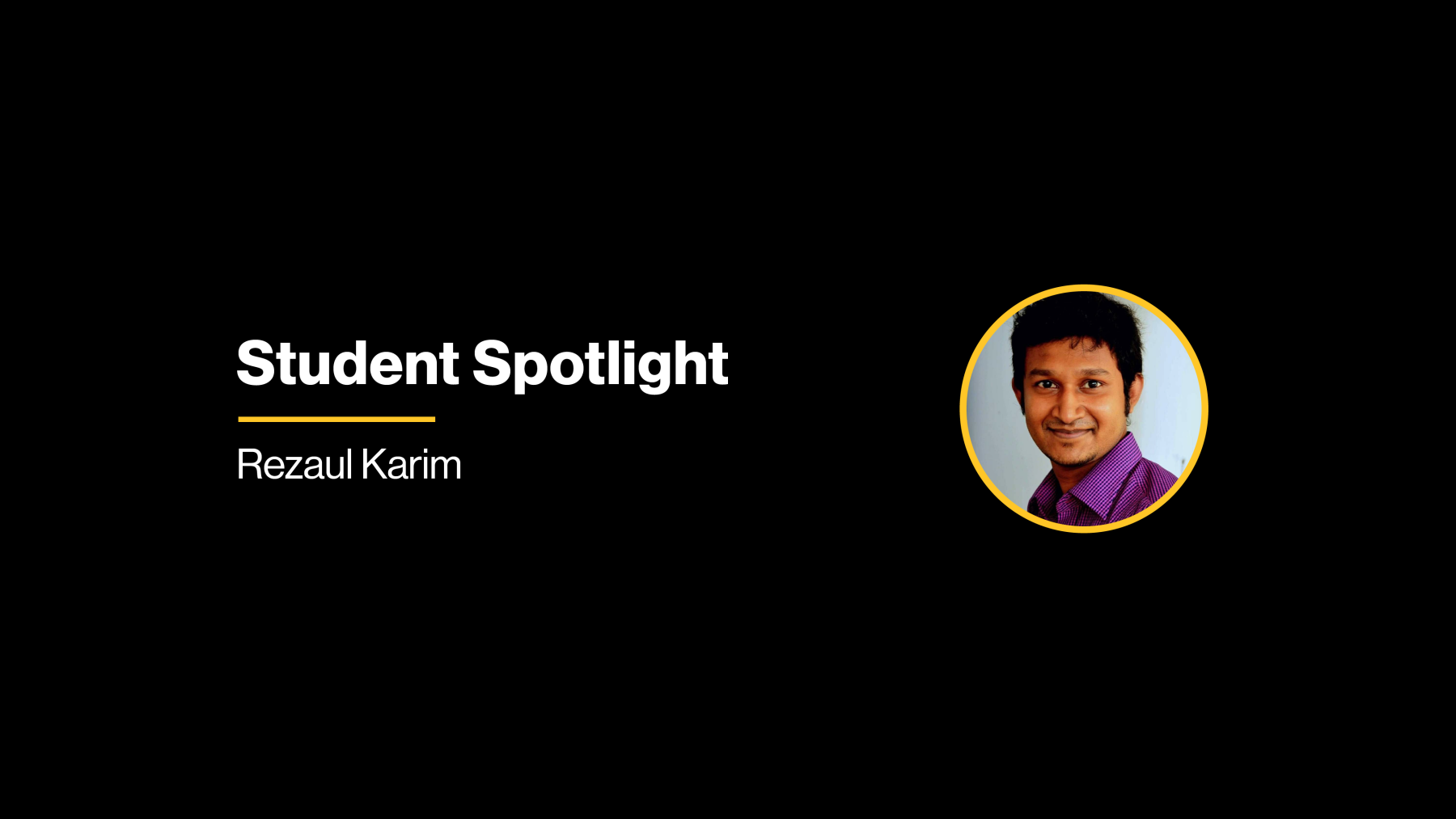
Doctoral student strives for better healthcare communication
Rezaul Karim believes that in the world of healthcare, communication is key. A lack of proper communication can lead to misunderstandings, misdiagnoses and even fatalities. This Enrichment Fellow is committed to understanding how communication between patients and doctors can be improved for better health outcomes. In this Q&A, he discusses his passion for solving health disparities and aspirations post-graduation!
Name: Rezaul Karim
Degree: Doctorate
Program: Communication
College: Hugh Downs School of Human Communication
Please tell us about your academic and professional background.
I am a doctoral student in communication at the Hugh Downs School of Human Communication and a Graduate College Enrichment Fellow at Arizona State University. I graduated from the University of Dhaka, Bangladesh, with a Bachelor's and Master's in Mass Communication and Journalism. Before joining ASU, I taught as a tenure-track faculty member in the Department of Communication and Journalism at the University of Chittagong.
What's something you learned during your professional or academic journey that surprised you or changed your perspective?
A defining incident in my life occurred in 2015 when I survived a severe car accident, resulting in multiple fractures in my leg. While recovering, I witnessed firsthand the challenges and shortcomings in the healthcare sector, particularly in the context of medical tourism and systemic issues within South Asian countries. This experience prompted a significant shift in my research focus from the political economy of mass communication to health communication.
Teaching health communication courses reinforced this transition as I recognized the vast potential for research and application in developing countries, where socioeconomic inequalities contribute to disparities in health communication interventions. My journey has led me to a renewed commitment to addressing healthcare challenges through research and communication.
What types of problems do you work on and why do you think they are important?
I'm researching health communication to promote equity and improve accessibility for marginalized communities. My work encompasses a multifaceted exploration, examining communication gaps between healthcare providers and patients. Additionally, I'm researching the impact of technological advancements on health outcomes, striving to identify innovative solutions for existing disparities.
How did you become involved in this work? What inspired you?
In 2014, I started my journey as a research novice. I received a couple of small projects regarding different aspects of health communication, including physician-patient communication, the disparity in physician-patient communication among ethnic patients and women's antenatal care. I reported my findings in research papers published in local and international journals. These research projects were a turning point in my career; they increased my interest in learning methods using Statistical Package for the Social Sciences software and writing research reports.
How have you interacted with the Graduate College? Is there an event, initiative or funding opportunity you're excited about?
Being an Enrichment Fellow is an incredible honor and a pivotal moment in my academic journey; I am quite proud of being awarded! This fellowship comes with financial support so I can devote my attention to my graduate studies. It provides opportunities for networking, professional development, and the chance to contribute to the academic community.
What advice do you have for students interested in your field or higher education?
Remember that passion, commitment and dedication are essential for anyone interested in higher education. Those qualities play a pivotal role in shaping an individual's educational journey. Passion provides the initial spark and enthusiasm, commitment ensures the resilience to stay the course and dedication reinforces the consistent effort required to reach academic goals.
What are your relaxation practices to recharge during the semester?
Taking short breaks for prayer (Salat) throughout the day helps me reduce stress and gain confidence. As a father of twin sons, my energy and joy comes from connecting with my children, even though they are currently in Bangladesh. Whenever I have the opportunity, I cherish conversations with them and find solace in our shared moments. I also enjoy watching movies and listening to music to unwind and rejuvenate my mind.
What are some of your long-term professional goals?
After completing my PhD, I plan to return to Bangladesh and pursue a faculty position at a public university. Teaching is not just a profession but a calling for me. I also aspire to channel my research efforts toward addressing health disparities in Bangladesh and other developing nations.
Additionally, I am an active member of the voluntary organization "Uttaran," which is dedicated to student welfare at the University of Chittagong, Bangladesh. Our initiatives, like providing free food, organizing blood donation drives and offering IT training and counseling, are essential to supporting students. I want to expand Uttaran's activities in tandem with my teaching career and make a lasting impact on community welfare, education and public health.
Learn more about the Graduate College Enrichment Fellowship
More stories from the Graduate Insider

Inside Graduate College’s Three Minute Thesis competition
When Aliyah Egan stepped onto the stage as a master’s student in last year’s Graduate College Three Minute Thesis (3MT) competition, she faced a challenge familiar to many researchers: explaining complex, specialized work to an audience with little or no background in her field.

Mentoring with intention: Strengthening graduate support at ASU
January is National Mentoring Month, a time to celebrate the impact mentoring can have and to reflect honestly on where gaps remain. At Arizona State University, mentoring is recognized as a critical component of graduate student success.

Graduate education is an adventure
About eighteen months ago, I set out on a journey walking the islands of the Dodecanese during a sailing trip in Türkiye and Greece with several friends. Along the way, I found winding paths, timeless villages and breathtaking views of sea and sky. That experience got me thinking about how adventure shows up in other parts of life, especially in learning.